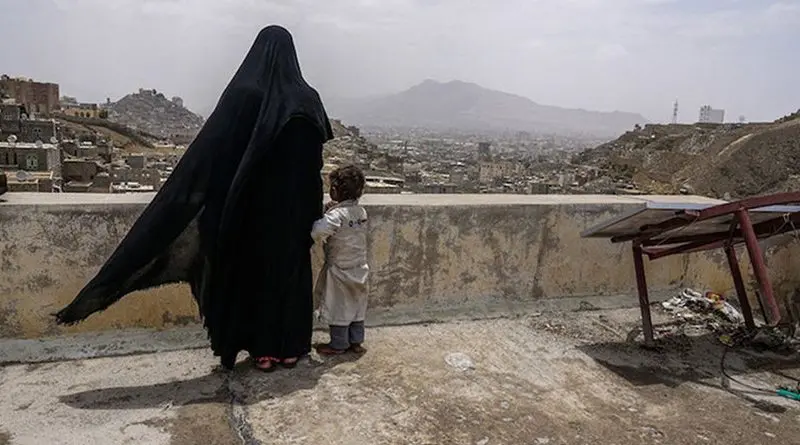Middle East In Perpetual Crisis: The Way Forward – OpEd
The ongoing aggressive and violent quest for power and dominance in the Middle East between two regional rivals i.e. Saudi Arabia and Iran has rendered peace and stability into a utopian idea that evades the region. In addition, the continued meddling of foreign powers ostensibly to fight terrorism and extremism further aggravates the situation and has seemingly spawned more intractable problems than solutions to the existing humanitarian crisis. The Yemen crisis, described by UN as “the largest humanitarian crisis,” has the potential to affect the entire region. The troubling fact is that the flawed approach and myopia of policy makers and the disgusting apathy and inaction of human rights organizations remain the same.
Yemen, one of the poorest Arab countries, is going through “the largest humanitarian crises” as a result of a conflict between government forces and Houthi rebels that started back in 2011. The situation worsened when Saudi-led coalition entered the conflict in March 2015 to fight and crush Houthi rebels of a Shia faction, allegedly backed by Iran.
The indiscriminate air strikes and blockade imposed since then by Saudi-led coalition, backed by the US and UK has badly affected innocent Yemenites. With tens of thousands of people killed and the scarce economic-industrial infrastructure bombed by the warring groups, the war ravaged country is now facing an imminent famine as the situation sees no improving. The measures taken by the UN and other organizations in pursuit of resolving the crisis and mitigating its effects fall far short of what the gravity of situation demands. Ominously, the already precarious situation was exasperated when Saudi Arabia choked Yemen by imposing fresh blockade in retaliation to a recent missile attack on its air port allegedly carried out by Houthi rebels.
The ensuing war of words and blame game between Iran and Saudi Arabia has pushed the region towards further chaos and disaster. The protracted Saudi-Iran rivalry and proxy war, fuelled by foreign powers can engulf the hitherto relatively stable countries. For instance, the crisis in Lebanon after the sudden and apparently forced resignation of Prime Minister Saad al-Hariri can spiral out of control and turn Lebanon into yet another theatre of war between Iran, Saudi Arabia and Israel etc., if major stake holders do not mend their ways. Given numerous incidents and vast evidences, it is but tantamount to state the obvious that complicity of major global powers has proved to be a setback to efforts of normalization by the UN.
For instance, the apparent complicity of states like the US and UK as indicated by Human Rights Watch (HRW) in its report Yemen Events 2016 is alarming to say the least. Despite indiscriminate air strikes and atrocities perpetrated by Saudi-led coalition in Yemen, various states including the US, Russia and UK continue to either sell weapons to Saudi Arabia or share targeting intelligence with it.
More recently, an investigation report by BBC titled “Raqqa’s Dirty Secret” exposes the tacit support of the US and UK-led coalition forces to the militant Islamic State group. The report reveals that some 250 IS fighters with 3,500 family members were covertly evacuated from Raqqa under a secret deal by the coalition that purports to fight the same terrorists. This underscores the dirty game being played by global powers against each other on the geopolitical chess board of Middle East. Thus, it is clear that major actors involved in the Middle East crisis tacitly support terrorists when it serves their skewed sense of national interest.
It is worth mentioning here that the current crisis in the Middle East has its roots in the flawed and misguided approach adopted by states in the wake of the Arab uprising. Unfortunately the same selfish and zero sum game mindset can be seen at function when we observe how major powers deal with the crisis in the Middle East.
To recapitulate, since the 2011 Arab uprising one country after another in the Middle East and North Africa (MENA) region has witnessed destabilization and destruction. The initial euphoria that this indigenous uprising against dictatorial and authoritarian regimes would usher in an era of greater emancipation from the clutches of authoritarian regimes was however short lived. Hopes of democracy taking roots in the region was shattered due to ill intent and flawed policies of foreign powers which mishandled and exploited the situation to maximize selfish geopolitical objectives to the chagrin of common people.
The consequent hopeless situation provided fertile ground for extremist elements like Islamic State (IS) to thrive and spread its tentacles within and beyond the region. Now after much death and destruction, Islamic State stands at least militarily defeated as it has lost nearly all the territories under its control, the significant in line being its two de facto capitals Raqqa in Syria and Mosul in Iraq. However, if not more, it is equally important to counter the extremist ideology of such terror outfits.
Since people tend to take extreme steps like suicide when they lose hope of any betterment and that extremist organizations feed on hopelessness; it is therefore crucial that stake holders in the Middle East, rights organizations and activists should all take measures to replace fear of any further exploitation, death and destruction with hope of peace and stability in the Middle East. After all, to quote Martin Luther King “injustice anywhere is a threat to justice everywhere”.
* Nisar Ahmed Khan, Research Affiliate at Strategic Vision Institute, Islamabad.

